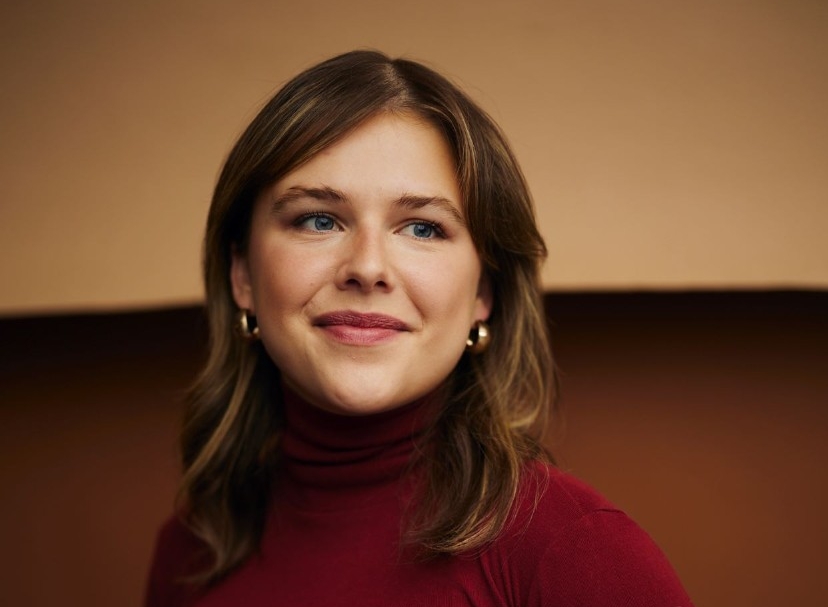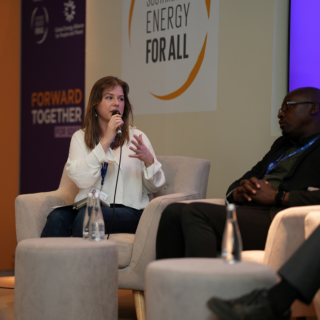Her own internship in art history, offered through Concordia’s Institute for Co-operative Education, was transformative. “That was massive, because I had a ton of support from my Co-op advisor to go deep into what I cared about and think outside the box of gallery work,” she says.
Looking at art history through a colonial and post-colonial lens allowed Watts a unique perspective on modern migration issues, for example, which led to an internship at the UN with the International Organization for Migration.
The internship inspired Watts to take on more responsibility within AIESEC, including running a series of events to build awareness of how students could affect issues of sustainability and human rights. The series brought together leading voices from across Canada — including the former executive director of Student Energy, Meredith Adler, destined to become Watts’s boss and then predecessor.
“For young people, I think everyone’s path to the climate space looks wonky, but we need to invite them in and let them internalize the idea that these are challenges that will only be solved by collective action.”
A moral and practical imperative for young people to be heard
Watts is emphatic on this point: “It’s impossible to overstate how important it is to get young people into the fight for a livable planet and a livable future.” Decisions being made — or not — right now absolutely define what the future looks like, she says, and many areas simply aren’t being addressed with the urgency and scale needed, “so there’s a moral imperative for young people to be heard and recognized as key stakeholders in this space.”
There’s also a practical argument: Because they haven’t yet become entrenched in existing systems, “young people are much more willing and inclined to challenge the status quo.” Part of what Student Energy wants to ensure is that young people get a foundation of access and knowledge of how the system works so they can challenge it in constructive, specific and informed ways.
“For me, it was about finding that community where I felt safe and accepted as somebody who did not come from a highly technical background, or who had grown up overseas and didn't necessarily know how all of Canada’s systems worked,” Watts says. She found it through AIESEC, and it’s now also available through Student Energy university chapters. Concordia doesn’t have a chapter yet, but that could easily change if someone requests it.
“We try not to do the top-down thing, because I believe in young people deciding what they want to do, then we help them do what they’ve decided to do,” Watts says. “Ultimately, this work is going to be done through movements and coalitions — and campuses are such an important environment to start that work.”


 Helen Watts, BFA 17 | Photo: Calvin Thomas Photography
Helen Watts, BFA 17 | Photo: Calvin Thomas Photography
 Helen Watts speaking at COP28 in Dubai
Helen Watts speaking at COP28 in Dubai


